#Declaration of Independence history
Explore tagged Tumblr posts
Text
🇺🇸 FUN HISTORY FACT: July 5th might actually be more important than July 4th! 🤯 We all celebrate the 4th of July with fireworks and BBQs to honor the signing of the Declaration of Independence. But here's the thing - it was actually July 5th when the real work began! That's when they actually published the Declaration, sent it to the troops, and started taking ACTION on those powerful words! Without July 5th, July 4th would've just been a piece of paper with some signatures. 😮 This got me thinking… how often do we have those "big moment" declarations in our own lives? Those awesome "hilltop experiences" where we decide to make a change? Whether it's a New Year's resolution, a decision to start eating healthier, or a plan to pursue a dream… The declaration feels AMAZING! But without our own personal "July 5th" follow-through, those declarations don't mean much! What's something you've declared recently that you're actively working to follow through on? Let's celebrate our "July 5th moments" of action! 💪 #HistoryLesson #FollowThrough #IndependenceDay
#July 5th 1776#Declaration of Independence history#American Revolution facts#follow-through importance#declaration implementation#Revolutionary War communication#July 4th aftermath#American independence process#historical follow-through#Declaration dissemination#American history lessons#personal resolutions follow-through#action after declaration
0 notes
Text
youtube
Schoolhouse Rock, "No More Kings" (1975)
Written & performed by Lynn Ahrens Animation by Paul Kim & Lew Gifford
#Tom Yohe#George Newall#Saturday morning TV#1970s#vintage#animated#America Rock#US history#1775#Boston Tea Party#1776#Declaration of Independence#Youtube
162 notes
·
View notes
Text
Can someone make an animatic of “My Goodbye” but it’s the USA and King George III?
#epic the musical#epic cyclops saga#epic the cyclops saga#my goodbye#epic my goodbye#epic odysseus#epic athena#odysseus epic#history#us history#revolutionary war#kinda reminds me of Hamilton#But also I am a theatre kid#True “Declaration of Independence” more like a break up letter between the us and king George III coded
93 notes
·
View notes
Text

my partner told me to draw late 18th century anomalocaris so here we are
#wyd when anomalocaris pulls up to the signing of the declaration of independence#if this gets eleven umbajillion likes i will do an opabinia one#anomalocaris#anomalopost#amrev#american revolution#american history#history#rave art
287 notes
·
View notes
Text
The Declaration of Independence of the United States of America
IN CONGRESS, July 4, 1776
The unanimous Declaration of the thirteen united States of America
When in the Course of human events, it becomes necessary for one people to dissolve the political bands which have connected them with another, and to assume, among the Powers of the earth, the separate and equal station to which the Laws of Nature’s God entitle them, a decent respect to the opinions of mankind requires that they should declare the causes which impel them separation.
We hold these truths to be self-evident, that all men are created equal, that they are endowed by their Creator with certain unalienable Rights, that among these are Life, Liberty, and the pursuit of Happiness. — That to secure these rights, Governments are instituted among Men, deriving their just powers from the consent of the governed, — That whenever any Form of Government becomes destructive of these ends, it is the Right of the People to alter or to abolish it, and to institute new Government, laying its foundation on such principles and organizing its powers in such form, as to them shall seem most likely to effect their Safety and Happiness.
Prudence, indeed, will dictate that Governments long established should not be changed for light and transient causes; and accordingly all experience hath shown, that mankind are more disposed to suffer, while evils are sufferable, than to right themselves by abolishing the forms to which they are accustomed. But when a long train of abuses and usurpations, pursuing invariably the same Object evinces a design to reduce them under absolute Despotism, it is their right, it is their duty, to throw off such Government, and provide new Guards for their future security. — Such has been the patient sufferance of these Colonies; and such is now the necessity which constrains them to alter their former Systems of Government. The history of the present King of Great Britain is a history of repeated injuries and usurpations, all having in direct object the establishment of absolute Tyranny over these States.
To prove this, let Facts be submitted to a candid world:
He has refused his Assent to Laws, the most wholesome and necessary for the public good.
He has forbidden his Governors to pass Laws of immediate and pressing importance, unless suspended in their operation till his Assent should be obtained; and when so suspended, he has utterly neglected to attend to them.
He has refused to pass other Laws for the accommodation of large districts of people, unless those people would relinquish the right of Representation in the Legislature, a right inestimable to them and formidable to tyrants only.
He has called together legislative bodies at places unusual, uncomfortable, and distant from the depository of their Public Records, for the sole purpose of fatiguing them into compliance with his measures.
He has dissolved Representative Houses repeatedly for opposing with manly firmness his invasions on the rights of the people.
He has refused for a long time, after such dissolutions, to cause other to be elected; whereby the Legislative Powers, incapable of Annihilation, have returned to the People at large for their exercise; the State remaining in the mean time exposed to all the dangers of invasion from without, and the convulsions within.
He has endeavoured to prevent the population of these States; for that purpose obstructing the Laws of Naturalization of Foreigners; refusing to pass others to encourage their migration hither, and raising the conditions of new Appropriations of Lands.
He has obstructed the Administration of Justice, by refusing his Assent to Laws for establishing Judiciary Powers.
He has made judges dependent on his Will alone, for the tenure of their offices, and the amount and payment of their salaries.
He has erected a multitude of New Offices, and sent hither swarms of Officers to harass our People, and eat out their substance.
He has kept among us, in times of peace, Standing Armies without the Consent of our legislatures.
He has affected to render the Military independent of and superior to Civil Power.
He has combined with others to subject us to a jurisdiction foreign to our constitution, and unacknowledged by our laws; giving his Assent to their Acts of pretended legislation:
For quartering large bodies of armed troops among us.
For protecting them, by mock Trial, from Punishment for any murders which they should commit on the Inhabitants of these States
For cutting off our Trade with all parts of the world.
For Imposing taxes on us without our Consent.
For depriving us, in many cases, of the benefits of Trail by Jury.
For transporting us beyond Seas to be tried for pretended offences.
For abolishing the free System of English Laws in a neighboring Province, establishing therein an Arbitrary government, and enlarging its Boundaries so as to render it at once an example and fit instrument for introducing the same absolute rule into these Colonies.
For taking away our Charters, abolishing our most valuable Laws, and altering fundamentally the Forms of our Governments.
For suspending our own Legislatures, and declaring themselves invested with Power to legislate for us in all cases whatsoever.
He has abdicated Government here, by declaring us out of his Protection and waging War against us.
He has plundered our seas, ravaged our Coasts, burnt our towns, and destroyed the lives of our people.
He is at this time transporting large armies of foreign mercenaries to compleat the works of death, decolation, and tyranny, already begun with circumstances of Cruelty & perfidy scarcely paralleled in the most barbarous ages and totally unworthy of the Head of a civilized nation.
He has constrained our fellow Citizens taken Captive on the high Seas to bear Arms against their Country, to become the executioners of their friends and Brethren, or to fall themselves by their Hands.
He has excited domestic insurrections amongst us, and has endeavoured to bring on the inhabitants of our frontiers, the merciless Indian Savages, whose known rule of warfare, is an undistinguished destruction of all ages, sexes and conditions.
In every stage of these Oppressions We have Petitioned for Redress in the most humble terms: Our repeated Petitions have been answered only by repeated injury.
A Prince, whose character is thus marked by every act which may define a Tyrant, is unfit to be the ruler of a free People.
Nor have We been wanting in attention to our British brethren. We have warned them from time to time of attempts by their legislature to extend an unwarrantable jurisdiction over us. We have reminded them of the circumstances of our emigration and settlement here. We have appealed to their native justice and magnanimity, and we have conjured them by the ties of our common kindred to disavow these usurpations, which we would inevitably interrupt our connections and correspondence. They too have been deaf to the voice of justice and of consanguinity. We must, therefore, acquiesce in the necessity, which denounces our Separation, and hold them, as we hold the rest of mankind, Enemies in War, in Peace Friends.
We, therefore, the Representatives of the United States of America, in General Congress, Assembled, appealing to the Supreme Judge of the world for the rectitude of our intentions, do, in the Name, and by the Authority of the good People of these Colonies, solemnly publish and declare, That these United Colonies are, and of Right ought to be Free and Independent States; that they are Absolved from all Allegiance to the British Crown, and that all political connection between them and the State of Great Britain, is and ought to be totally dissolved; and that as Free and Independent States, they have full Power to levy War, conclude Peace, contract Alliances, establish Commerce, and to do all other Acts and Things which Independent States may of right do. And for the support of this Declaration, this a firm reliance on the Protection of Divine Providence, we mutually pledge to each other our Lives, our Fortunes and our sacred Honor.
#us politics#project 2025#fight project 2025#survive out of spite#the declaration of independence#us history#us government
39 notes
·
View notes
Text
What bizzaro alternate American timeline are we on? When did the United States start ignoring the Constitution? When did the good, honest, ethical citizens of this nation relinquish control over it? I must have missed that meeting because I don’t recall that sh*t
The timeline I grew up on, (although I had yet to be born) a sitting president was forced to resign over a cover up of illegal wire tapping among other things not nearly as corrupt. The timeline I grew up in a guy lost an election because he spelled potato wrong. The timeline in a guy almost got impeached because he had relations with a lady and said he didn’t. The timeline I grew up in America was the good guys. What happened!?
When did we urge the Supreme Court to allow corporations and the wealthy to purchase our elections?! When did we allow senators from Kentucky to block Supreme Court picks with no reasoning behind it?! When did we tell John Roberts racism had ended and we could remove voting protections from the Constitution!? When did we decide that a person can make fake electors to circumvent democracy, knowing lie about a stolen election to later stage a coup, then violate the Constitution again by allowing him to run for ANY federal office again? When, in any timeline can you steal classified documents, refuse to return them, then when the FBI raids where they are, there are more than 50 empty folders that once held top secret information, and you’re not locked the f*ck up!? When did we become an oligarchy?
I just don’t recall when this was acceptable. I simply can’t recall how this happened.
#traitor trump#politics#election 2024#the left#donald trump#trump is a threat to democracy#news#republicans#crime#vote democrat#trump is a traitor#trust#truth#american people#american history#america#hope#why#fuck trump#scotus#democrats#democracy#fraud#free speech#1st amendment#love#the constitution#declaration of independence#trump is guilty af#vote blue
65 notes
·
View notes
Text

Ahead of our nation’s 250th anniversary in 2026, the National Archives is celebrating #Declaration250: the spirit of equality and liberty enshrined in the Declaration of Independence, 250 years of our nation’s resilience and pursuit of happiness, and our collective growth toward a more perfect nation.
As the home of the Declaration, we will be hosting exhibitions, special programs, themed events, civic education initiatives, and other activities, culminating with a special Independence Day celebration in 2026.
Join us on this journey: https://www.declaration250.gov/
📸: A Declaration250 logo on top of an image of the Declaration of Independence.
80 notes
·
View notes
Text

"He is an old friend with whom I have often had occasion to labor on many a knotty problem, and in whose abilities and steadiness I always found great cause to confide."
-- John Adams, on Thomas Jefferson, 1784
•••
"It is with much reluctance that I am obliged to look upon him as a man whose mind if warped by prejudice and so blinded by ignorance as to be unfit for the office he holds. However wise and scientific as a philosopher, as a politician he is a child and a dupe of party."
-- President John Adams, on his Vice President Thomas Jefferson, 1797
•••
"I always loved Jefferson, and still love him."
-- Former President John Adams, expressing his fondness for former President Thomas Jefferson to Edward Coles, which ultimately led to the two former Presidents rekindling their friendship and beginning a remarkable correspondence that lasted until they both died, within hours of one another, on July 4, 1826 -- the 50th anniversary of the Declaration of Independence.
#History#Presidents#Presidential History#John Adams#President Adams#Thomas Jefferson#President Jefferson#Founding Fathers#Founders#Politics#Political History#Political Rivals#Presidential Relationships#Presidential Friendships#Presidential Rivalries#Presidential Rivals#Presidential Feuds#Presidents on Presidents#Quotes by Presidents#Presidential Quotes#Revolutionaries#Adams-Jefferson Correspondence#Presidential Correspondence#Presidency#Declaration of Independence#Adams-Jefferson Coincidence#Death of John Adams#Death of Thomas Jefferson#50th Anniversary of the Declaration of Independence
105 notes
·
View notes
Text
this is your reminder that to overthrow a government that does not do right by its people, or tries to usurp power and use it against them, is literally patriotic
source: the Declaration of Independence
“…whenever any Form of Government becomes destructive of these ends, it is the Right of the People to alter or to abolish it, and to institute new Government, laying its foundation on such principles and organizing its powers in such form, as to them shall seem most likely to effect their Safety and Happiness. Prudence, indeed, will dictate that Governments long established should not be changed for light and transient causes; and accordingly all experience hath shewn, that mankind are more disposed to suffer, while evils are sufferable, than to right themselves by abolishing the forms to which they are accustomed. But when a long train of abuses and usurpations, pursuing invariably the same Object evinces a design to reduce them under absolute Despotism, it is their right, it is their duty, to throw off such Government, and to provide new Guards for their future security.”
#the declaration of independence#it kinda fucks hard#like fuck yeah it’s my duty to overthrow the government!#patriotism#trump#maga#< do we think i can attract them to this post?#:)#anarchy#< not my style but fuck yeah you guys can help#politics#us politics#constitution#usa#us#i can’t believe they didn’t hype up this document more in history class#who knew it would regain its relevance so soon…#history#text#quotes#declaration of independence#hmm what tags do i add to make the decleration of independence post the one that breaks containment#hmmm#fyp#that’s a classic right#yeah
19 notes
·
View notes
Text
𖥻🌻𝙇𝙤𝙨 𝙣𝙤𝙫𝙞𝙤𝙨 𓂃
𓄹 ¡Estos bebés están enamorados! ¡Son tan lindos juntos! ♡ . 💞੭




𓄹 ¿Es una pareja rara? ¡Puede ser! Pero el ship tiene una base y es que ¡Ambos se conocieron de niños! ♡ . 💞੭

𓄹 Esto sucedió durante el primer viaje de Simón a España, el cual acompañaría a Manuel Mallo a la Corte. Él era el amante de la reina Maria Luisa en ese entonces y por eso, el joven Bolívar pudo conocer al Príncipe de Asturias. ♡ . 💞੭
𓄹 Quizás no empezaron con buen pie, pero, seguro que se llegaron a ser amigos. Tengo un headcanon al respecto ☝🏻:
❝ Cuando Simón golpea a Fernando accidentalmente con el volante, el Príncipe se enfada y abandona el juego, sintiéndose humillado pero también molesto por el dolor del golpe y no tarda en romper a llorar.
El joven criollo, movido por Mallo y muy a regañadientes, se disculpa con el heredero y cuando este está curando su herida, se acerca para darle un "besito de rana" pero el Borbón mueve su cabecita y ambos se besan sin desearlo.
Por la noche, mientras el caraqueño descansaba en su habitación, el Príncipe de Asturias lo interrumpe cuidadosamente. Mientras ambos se sientan al borde de la cama, Fernando le pide al americano con timidez si puede volver a besar sus labios pues le gustó cómo se sintió antes. Bolívar no duda y vuelve a besar a su amigo pero esta vez con mucho más esmero, marcando el inicio de su inocente relación. ❜❜ ♡ . 💞੭
𓄹 ¡Espero que os gusten los dibujitos! ♡ . 💞੭
#artists on tumblr#fernando vii#simon bolivar#declaration of independence#history#history art#art#napoleonic wars#latinoamérica#españa#historyshipping#ship art#ferdinand vii
60 notes
·
View notes
Text


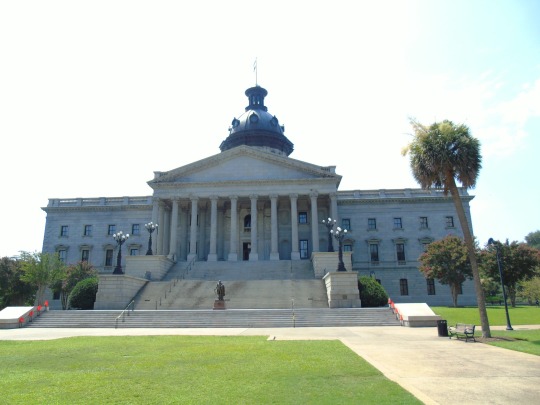


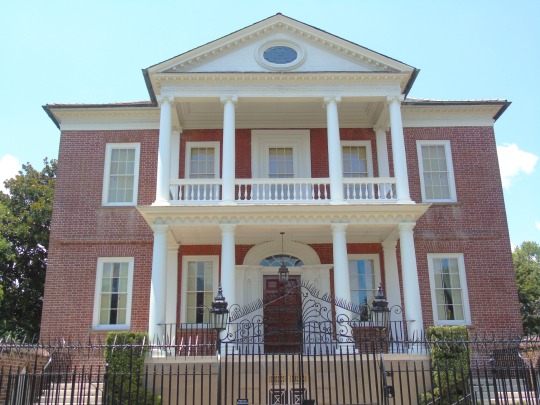

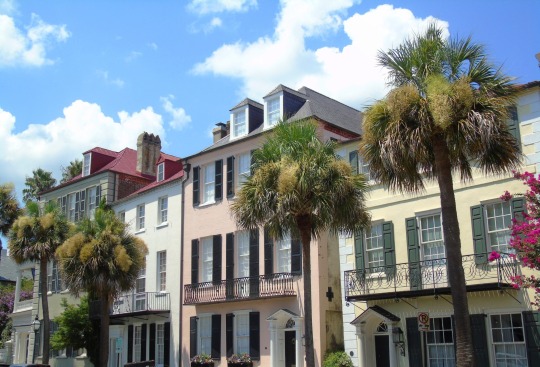

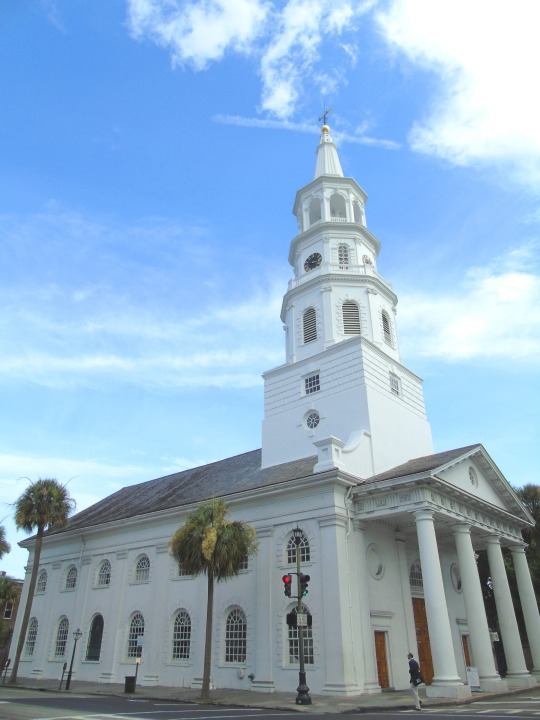





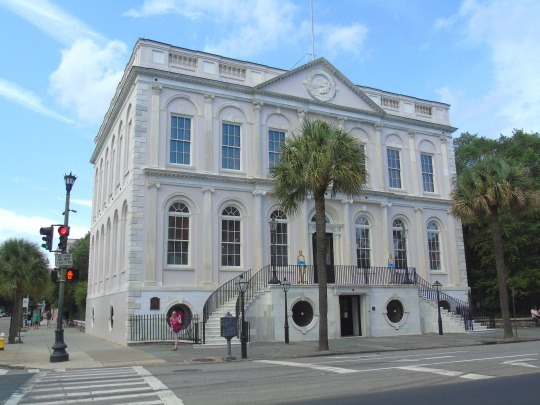



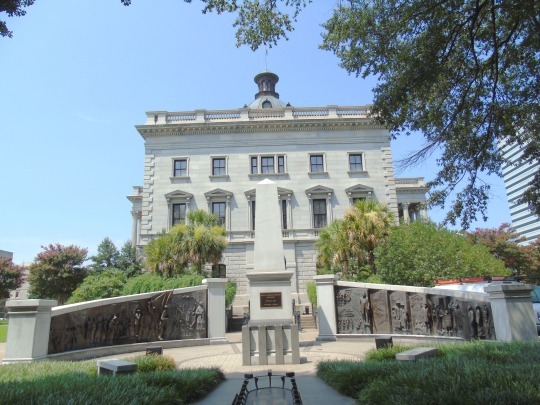





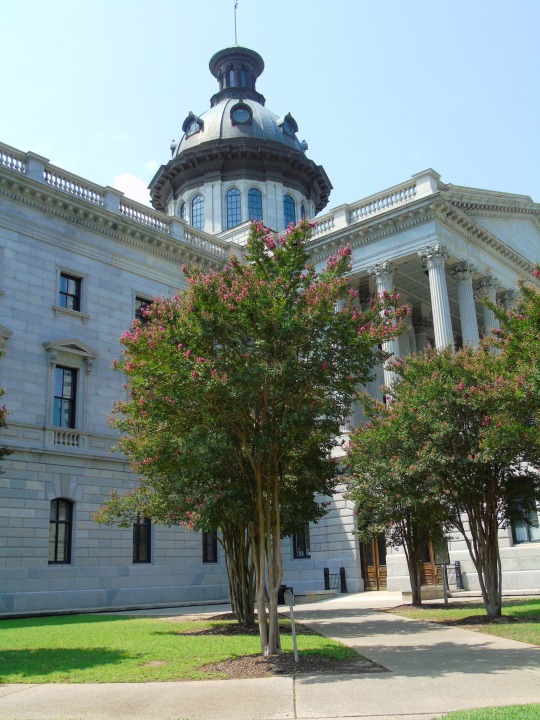

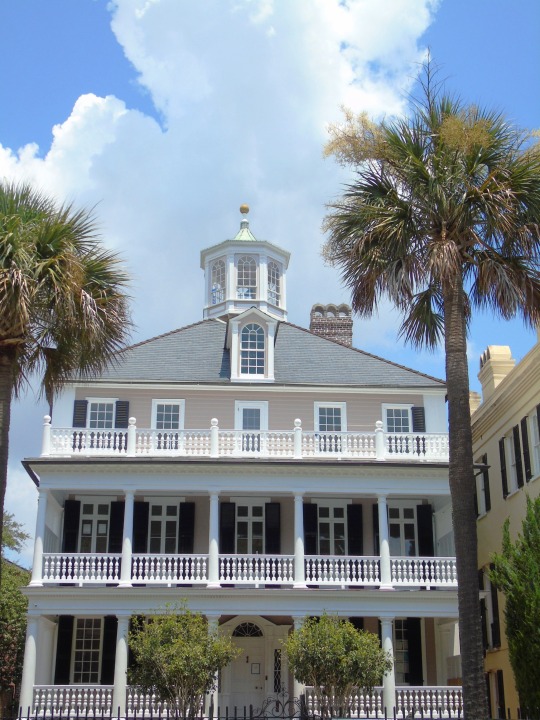
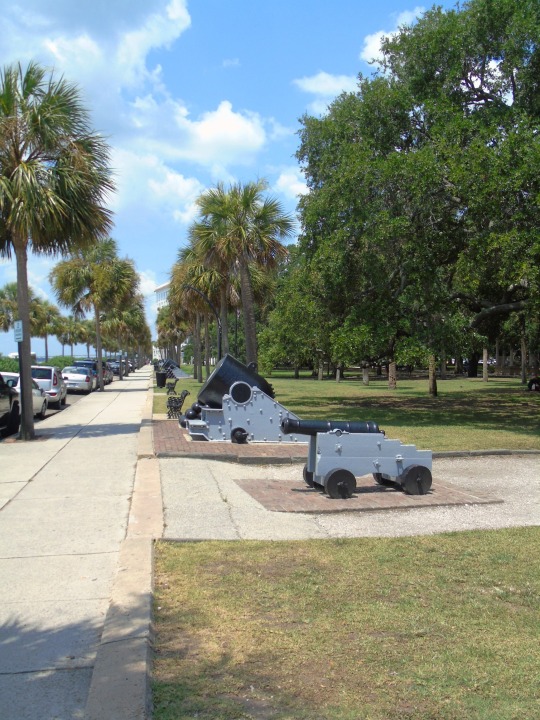
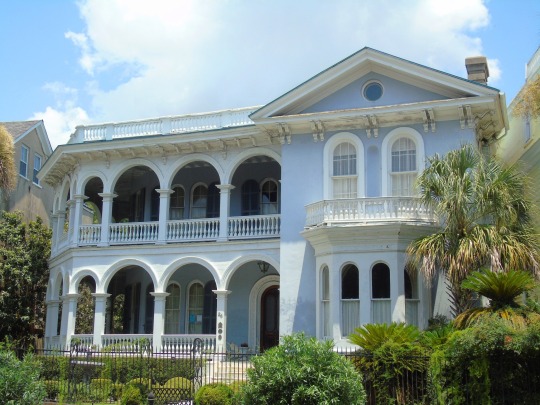
South Carolina was declared an "independent commonwealth" on December 18, 1859.
#South Carolina#declared#independent commonwealth#18 December 1859#165th anniversary#US history#travel#charleston#Cooper River#Castle Pinckney#architecture#South Carolina State House#Columbia#Waterfront Park#Unitarian Church#savannah river#north augusta#Miles Brewton House#usa#summer 2016#photography#photoset#original photography#vacation#tourist attraction#landmark#cityscape#landscape
19 notes
·
View notes
Note
How do the other Muppet Elvii feel about you assigning yourself the role of leader
Woah mercy, they really don't mind it too much! They've been a callin' me 'chief' for a while now, so they are at a peace with it. And after all, *fingerguns* I'm the king.
Aww come on now chief! You might be in charge but, you know that I'M the king!
Ohh now fella, we've been over this already; I'M the king!
No, I'M the king!
I'M the k-
Fellas! Fellas!...
...
...
*points to himself* I'M the king!
Ohh now, don't make me use my karate on ya, humina humina humina! *puts his hands up threateningly*
*they also put their hands up*
(*fingersnaps* Boys! Behave yourselves...)
Mercy!... Sorry mod. Uh-huh. Uh-huh. Uh-huh.
#muppet elvis answers#the muppets#elvis presley#elvisverse#elvis the king#muppets#(mod note: looks like they referenced 'Great Moments in Elvis History' again. they did this during the 'Declaration of Independence' bit.)#elvisposting
10 notes
·
View notes
Text
it’s so funny being obsessed with national treasure as a canadian
#oh they’re stealing the declaration of independence? ok#it’s a very patriotic movie#very american#AMERICA FUCK YEAH!#i know jack about american history it’s so funny#national treasure#i learn my american history from national treasure
21 notes
·
View notes
Text

Jerry Mouse brandishing a freshly dipped quill and filled with the Spirit of ’76, from the final scene of “The Declaration Of Independunce” from “Tom and Jerry Tales” 2007.
#Spike Brandt#Tony Cervone#Frank Molieri#Tom and Jerry#MGM#Metro Goldwyn Mayer#WB#WB Studios#Tom and Jerry Tales#Tom#Tom Cat#Jerry#Jerry Mouse#America#American History#Declaration of Independence#John Hancock#quill#animation art#Tom and Jerry cartoon
16 notes
·
View notes
Text

LETTERS FROM AN AMERICAN
April 9, 2025 (Wednesday)
Heather Cox Richardson
Apr 10, 2025
On April 9, 1865, General Robert E. Lee surrendered the Army of Northern Virginia to General Ulysses S. Grant of the United States Army at Appomattox Court House in Virginia. Lee’s surrender did not end the war—there were still two major armies in the field—but everyone knew the surrender signaled that the American Civil War was coming to a close.
Soldiers and sailors of the United States had defeated the armies and the navy of the Confederate States of America across the country and the seas, at the cost of hundreds of thousands of lives and almost $6 billion. To the northerners celebrating in the streets, it certainly looked like the South’s ideology had been thoroughly discredited.
Southern politicians had led their poorer neighbors to war to advance the idea that some people were better than others and had the right—and the duty—to rule. The Founders of the United States had made a terrible mistake when they declared, “All men are created equal,” southern leaders said. In place of that “fundamentally wrong” idea, they proposed “the great truth” that white men were a “superior race.” And within that superior race, some men were better than others.
Those leaders were the ones who should rule the majority, southern leaders explained. “We do not agree with the authors of the Declaration of Independence, that governments ‘derive their just powers from the consent of the governed,’” enslaver George Fitzhugh of Virginia wrote in 1857. “All governments must originate in force, and be continued by force.” There were 18,000 people in his county and only 1,200 could vote, he said, “But we twelve hundred…never asked and never intend to ask the consent of the sixteen thousand eight hundred whom we govern.”
But the majority of Americans recognized that if it were permitted to take hold, this ideology would destroy democracy. They fought to defeat the enslavers’ radical new definition of the United States. By the end of 1863, President Abraham Lincoln dated the birth of the nation not to the Constitution, whose protection of property underpinned southern enslavers’ insistence that enslavement was a foundational principle, but to the Declaration of Independence.
“Four score and seven years ago our fathers brought forth on this continent, a new nation, conceived in Liberty, and dedicated to the proposition that all men are created equal. Now we are engaged in a great civil war, testing whether that nation, or any nation so conceived and so dedicated, can long endure.”
The events of April 9 reassured Americans that they had, in fact, saved “the last best hope of earth”: democracy. Writing from Washington, D.C., poet Walt Whitman mused that the very heavens were rejoicing at the triumph of the U.S. military and the return to peace its victory heralded. “Nor earth nor sky ever knew spectacles of superber beauty than some of the nights lately here,” he wrote in Specimen Days. “The western star, Venus, in the earlier hours of evening, has never been so large, so clear; it seems as if it told something, as if it held rapport indulgent with humanity, with us Americans.”
So confident was General Grant in the justice of his people’s cause that he asked only that Lee and his men give their word that they would never again fight against the United States and that they turn over their military arms and artillery. The men could keep their sidearms and their horses because Grant wanted them “to be able to put in a crop to carry themselves and their families through the next winter.”
Their victory on the battlefields made northerners think they had made sure that “government of the people, by the people, for the people, shall not perish from the earth.”
But their conviction that generosity would bring white southerners around to accepting the equality promised in the Declaration of Independence backfired. After Lincoln’s assassination, Andrew Johnson of Tennessee took over the presidency and worked hard to restore white supremacy without the old legal structure of enslavement, while white settlers in the West brought their hierarchical ideas with them and imposed them on Indigenous Americans, on Mexicans and Mexican Americans, and on Asians and Pacific Islanders.
With no penalty for their attempt to overthrow democracy, those who thought that white men were better than others began to insist that their cause was just and that they had lost the war only because they had been overpowered. They continued to work to make their ideology the law of the land. That idea inspired the Jim Crow and Juan Crow laws of the late-nineteenth and twentieth centuries, as well as the policies that crowded Indigenous Americans onto reservations where disease and malnutrition killed many of them and lack of opportunity pushed the rest into poverty.
In the 1930s, Nazi leaders, lawyers, and judges turned to America’s Jim Crow laws and Indian reservations for inspiration on how to create legal hierarchies that would, at the very least, wall certain populations off from white society. More Americans than we like to believe embraced facism here, too: in February 1939, more than 20,000 people showed up for a “true Americanism” rally held by Nazis at New York City’s Madison Square Garden, featuring a huge portrait of George Washington in his Continental Army uniform flanked by swastikas.
President Franklin Delano Roosevelt rallied Americans to oppose fascism by emphasizing the principles that would, he said, provide “the foundations of a healthy and strong democracy: “Equality of opportunity for youth and for others. Jobs for those who can work. Security for those who need it. The ending of special privilege for the few. The preservation of civil liberties for all. The enjoyment of the fruits of scientific progress in a wider and constantly rising standard of living.” He called for “the cooperation of free countries, working together in a friendly, civilized society.”
The gulf between the ideals of democracy and the reality of life in the segregated U.S. during and after World War II galvanized Black Americans, Mexican Americans, and Asian Americans to demand equality. They successfully challenged school segregation, racial housing restrictions, state laws prohibiting interracial marriage, and anti-Chinese laws based in the 1882 Chinese Exclusion Act.
As the military fought fascism in Europe, schools and churches at home emphasized that democracy depended on acceptance of racial, ethnic, and religious differences. Rallies championed diversity, and government-sponsored films warned Americans not to succumb to fascist propaganda. Posters trumpeted slogans such as “Catholics–Protestants–Jews…Working Side By Side…in War and Peace!” and reminded Americans not to “infect” their children “with racial and religious hate.” In a 1947 radio show, Superman fought a Ku Klux Klan–like gang trying to keep foreign-born players off high school sports teams, and in 1949, comic book artist Wayne Boring portrayed him on a poster urging a group of American schoolchildren to defend their classmates from “un-American” attacks on their race, religion, or ethnicity.
In the 1950s those ideas had produced a “liberal consensus,” shared by most Democrats and Republicans alike. The government should regulate business, provide for basic social welfare, and promote infrastructure: in other words, it should reflect democratic values. But when the Supreme Court’s 1954 Brown v. Board of Education decision tied the federal government not just to economic equality for white Americans, but also to civil rights, opponents of the liberal consensus resurrected the same argument former Confederates had used after the Civil War to couch their ideology in economic, rather than racial, rhetoric.
Rejecting the idea of equality, they argued that the government’s effort to protect civil rights was tantamount to socialism because it took tax dollars from hardworking white men to provide benefits for undeserving Black people who wanted a handout. This idea gained momentum after Congress passed the Voting Rights Act in 1965, and gradually came to include people of color and women who demanded equality. In 1980, Ronald Reagan rode the idea that the liberal consensus was simply a way to redistribute wealth to undeserving Americans of color or women—or both, like Reagan’s “welfare queen”—into the White House.
As more than $50 trillion moved from the bottom 90% of Americans to the top 1% between 1981 and 2021, Republicans deflected attention from the hollowing out of the middle class by demonizing racial, religious, and gender minorities. By 2012 they were talking of “makers” and “takers,” and by 2016 they were feeding voters ideas and images straight out of the nation’s white supremacist past.
By 2021 the idea that some people are better than others and have a right to rule—the same ideology that had driven the Confederates—created a mob determined to end American democracy. The rioters who attacked the U.S. Capitol on January 6, 2021, to overturn the results of the 2020 presidential election believed they were writing a new history of the United States, one that brought to life the hierarchical version of American history claimed by the Confederates before them. On that day, one of the rioters accomplished what the southern troops during the Civil War had never been able to: he carried the Confederate battle flag into the United States Capitol.
At the end of his life, General Grant recalled the events of April 9, 1865. “What General Lee's feelings were I do not know,” Grant wrote. “[M]y own feelings, which had been quite jubilant on the receipt of his letter [asking to surrender], were sad and depressed. I felt like anything rather than rejoicing at the downfall of a foe who had fought so long and valiantly, and had suffered so much for a cause, though that cause was, I believe, one of the worst for which a people ever fought, and one for which there was the least excuse.”
LETTERS FROM AN AMERICAN
HEATHER COX RICHARDSON
#Letters From an American#Heather Cox Richardson#American Civil War#American History#General Grant#General Lee#equality#Declaration of Independence#founding documents#history#the Confederacy#income inequality#inequality
8 notes
·
View notes
Text
The Declaration of Independence's warning for Trump
#public notice#declaration of independence#america#history#donald trump#trump administration#tyranny#resistance#el salvador#taxes#trade war#tariffs
7 notes
·
View notes